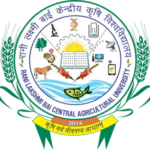Agricultural biochemistry explores the chemical processes and substances that underpin crop and soil health, and their impact on agricultural productivity. This field delves into the biochemical interactions within plants, including the synthesis of essential nutrients, secondary metabolites, and hormones that influence growth and resistance to pests and diseases. By understanding these biochemical processes, researchers can develop targeted approaches to enhance crop yields, improve nutrient efficiency, and create resilient plant varieties. Agricultural biochemistry also examines the role of soil biochemistry in nutrient cycling and soil fertility, providing insights into how soil health affects plant growth and productivity.
In addition, agricultural biochemistry plays a critical role in the development of sustainable farming practices. Through the study of biochemical pathways and their manipulation, scientists can innovate new fertilizers, pesticides, and soil amendments that minimize environmental impact. This includes the creation of biopesticides derived from natural sources and the development of precision agriculture techniques that optimize resource use and reduce waste. By integrating biochemical insights into agricultural practices, the field supports efforts to achieve food security, improve crop resilience, and promote environmentally responsible farming.







